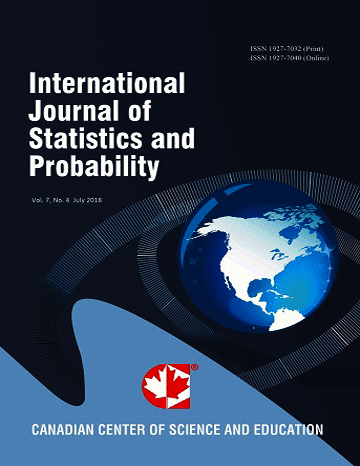Inferences About a Robust Heteroscedastic Measure of Effect Size When There Are Two Covariates
- Rand R. Wilcox
Abstract
Recently, a method was proposed for making inferences about a robust, heteroscedastic measure of effect size when there is a covariate. The method is readily extended to two covariates, but nothing is known about how well it controls the Type I error probability. This note reports results indicating why, when dealing with two covariates, the Type I error probability drops well below the nominal level when the sample sizes are small. A modification of the method is suggested that performs well in simulations. The method is used to compare two groups of participants who are categorized as depressed or not depressed. The dependent variable is a measure of meaningful activities. The two covariates are a measure of stress and a measure of perceived health.
- Full Text:
 PDF
PDF
- DOI:10.5539/ijsp.v13n2p46
Index
- ACNP
- Aerospace Database
- BASE (Bielefeld Academic Search Engine)
- CNKI Scholar
- DTU Library
- Elektronische Zeitschriftenbibliothek (EZB)
- EuroPub Database
- Excellence in Research for Australia (ERA)
- Google Scholar
- Harvard Library
- Infotrieve
- JournalTOCs
- Mir@bel
- Open policy finder
- ResearchGate
- Technische Informationsbibliothek (TIB)
- UCR Library
- WorldCat
Contact
- Wendy SmithEditorial Assistant
- ijsp@ccsenet.org
